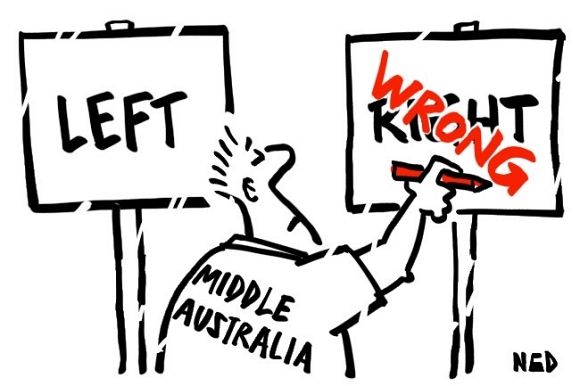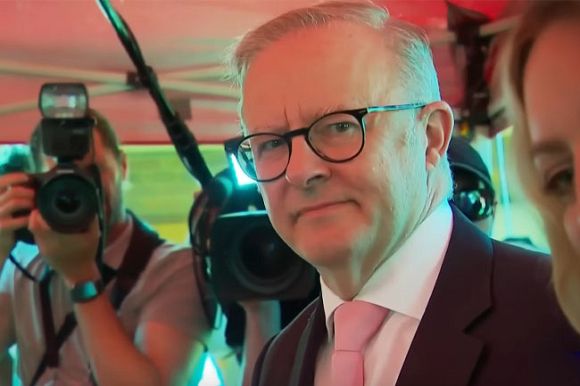The nation's shifting core group has outgrown, outnumbered and outclassed the politicians still refusing to represent it, writes Zayda Dollie.
THE REAL VICTORY to come out of the 2025 Federal Election is the record number of women who will make up the nation’s 48th Parliament.
It's a sign of the times, but it also marks a shifting voter base that has no qualms in swiping right on representatives for as long as it takes to find the right one.
Out with the old, in with the newsflash
Voters have elected at least* six women over their male counterparts to represent them for the first time in the House of Representatives.
Under the previous Albanese Government, 58 of the 151 members of the Lower House were women. This year, up to 16 new female contenders stood in the running for a seat, meaning women could have held an historic 74 seats in the House of Representatives.
Of the 76 seats in the Senate, women occupy over half of them. Only half the Senate seats were up for re-election — 43 were held by women before the election.
Under newly elected Labor Prime Minister Anthony Albanese, this ratio won't change. Women will likely make up at least half of Albanese's Cabinet in this election cycle.
In 2022, when Labor came into power the first time, PM Albanese made a point of assigning senior positions to the ten women in his Cabinet.
He said:
"This is the largest number of women who have ever served in an Australian Cabinet, with ten women in the Cabinet. In addition to that, in terms of the Ministry, there are 13 women in the Ministry and 19 frontbenchers."
Albanese is expected to unveil his ministry in the coming days — we will see whether the Prime Minister can top his own precedent.
The young and the restless
Though votes are still being tallied, the 63 confirmed seats won by women will be the most we have seen in parliament under any government. The number has risen significantly in the last six years.
In 2019, there were 40 women in the House of Representatives and 32 women in the Senate. Three years later and the number has gone up by almost a third.
The significance of the jump is lost when you try to measure social change in public sector time. Before last week, there was one female representative for Queensland in the Lower House and as of Saturday, there are six more.
It took one election for that number to increase sixfold. Voters only needed to be asked once.
The old and the dutiful
The most novel thing about this election was the inverted demographic structure of the voting bloc. This was the first time Gen Z and Millennials combined were said to exceed the number of Baby Boomers at voting polls.
The emphasis given to this novelty – that young people would become the dominant voters this election – has given those trying to exploit it acute tunnel vision.
It seems obvious that if young people were the key demographic during the election, they should qualify as the nation’s key demographic as a general rule.
The Liberal Party’s policies and their accompanying vacuous rhetoric are an affront to the young Australians, who outnumber them and will one day outlive them.
During his campaign trail, a journalist asked Opposition Leader Peter Dutton whether he had policies for women on work and education.
She said:
In your own campaign launch speech, you mentioned women twice and that was in relation to how you protect them ...
When you speak about female-dominated industries like education, you talk about the work agenda — what are you offering modern working women?
Dutton answered:
I'm offering them the chance to get a home.
... accessing super, that women who have had a really messy relationship breakup, who haven't had a home before or have no roof over their head with their kids, I want to provide that stability.
I've worked hard every day in this job to keep women safe and young girls and children safe.
At no point does Dutton mention work agenda or education in his answer. Dutton's talking points on women have been consistent, if not repetitive.
These aren't policies. These are views where policies should be. Women in need of safety and security. Women in need of a protector to ward off the dangers their environment poses to them: homelessness, domestic violence, relationships.
Incidentally, these descriptions are not of women, either. They are descriptions of ideas about women. Dutton doesn't see women as people because he doesn't see them at all. It's not that women aren't equal — it's that they aren't real. To Dutton, they are an abstraction.
Children, in Dutton's worldview, are a vulnerability — worthy of protection, but not worthy of more. For the women who get put in the same basket as their children, the Opposition Leader could not sound more paternalistic.
Nothing could feel more condescending than a man who will not shift his worldview to include you in it. Not even when directly asked.
The Coalition Government still sees itself as Australia’s key demographic and the nation’s dominant group — ignoring the reality of almost all other Australians before, during and after the election.
In terms of population size, currency and relevance to the public, the Liberal Party should be issued its correct label — a minority fringe group, at high risk of becoming further marginalised than it already is.
Disservice station
Last Monday, two days after the election, Shadow Minister and Nationals Leader Bridget McKenzie appeared on ABC’s Q+A.
She defended the Coalition’s policies in front of a live audience, claiming it had good policies but hadn't communicated those well to the public.
A young woman in the audience pushed back on the Senator's claim.
She said:
“It’s interesting to hear those sentiments when we know that Peter Dutton visited 17 petrol stations along his campaign trail, but at the same time didn’t release a single policy on women.”
Of all the responses a member of the Senate could come back with, it is baffling McKenzie opted for this one.
She said:
“So Genevieve, women also fill up the car. They also go to petrol stations.”
A statement like this does McKenzie and women everywhere a disservice.
McKenzie concedes to the idea that women are living in a man's world because women also fill up the car and go to petrol stations. A man's world that makes concessions for women is the Coalition's idea of equality as per its one-size-fits-men program.
Why would a woman agree to live in a world designed for men, with the odds stacked against her? Why would a woman consent to a world designed to harm her? Wouldn't a woman want to reshape the world if it had been designed against her interests?
Equality exists for the Liberals, but only conceptually. They can't implement it. Their policies for women are as invented as their ideas about them — hollow, but mostly, imaginary. They can't be applied to the real world. They'd have to reflect real life first.
Ideology doesn't translate well to the real world. That's what policy-making is for. That's why the public asks parties to list their policies, the ones designed to improve the real world. If a party can't name its policies because it has none to offer, we should be asking why that party still exists.
A political party that makes self-preservation its ultimate goal is doomed to death by a thousand rewrites. It's like AI model collapse — too many iterations of the same thing. A party that reproduces itself over and over again degenerates with every repeat. The party becomes less like the original with every rebirth.
For a party that decides to be anti-diversity, how will it receive new input? With no new input, the party denies itself the chance to ever correct itself, to learn by trial and error or to learn at all. It robs itself of the chance to improve on the past. Ultimately, it won't.
Conservatives will not adapt or die because conservatives don't care about dying. Their mission is to last forever, not to live forever. A party that makes legacy its legacy belongs in a museum.
These parties have no place in politics anymore. They will get worse with every new cycle until we stop voting to keep them alive.
*All figures quoted in this article are accurate as at the time of publication (AEC)
Zayda Dollie is an IA assistant editor who believes in the power of stories and in having female voices heard. You can follow her on Instagram @zayda_dollie_hendricks, X @ZaydaD or Bluesky @zaydadollie.
 This work is licensed under a Creative Commons Attribution-NonCommercial-NoDerivs 3.0 Australia License
This work is licensed under a Creative Commons Attribution-NonCommercial-NoDerivs 3.0 Australia License
Support independent journalism Subscribe to IA.














